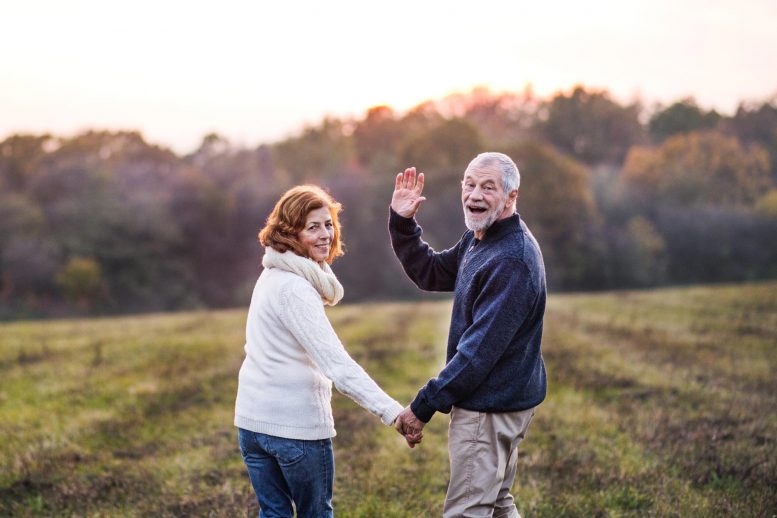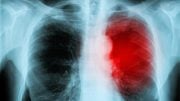
Walking speed is a well known indicator of good cardiovascular health.
Slow walkers are almost four times more likely to die from COVID-19, and have over twice the risk of contracting a severe version of the virus, according to a team of researchers from the National Institute for Health Research (NIHR) Leicester Biomedical Research Centre led by Professor Tom Yates at the University of Leicester.
The study of 412,596 middle-aged UK Biobank participants examined the relative association of body mass index (BMI) and self-reported walking pace with the risk of contracting severe COVID-19 and COVID-19 mortality.
The analysis found slow walkers of a normal weight to be almost 2.5 times more likely to develop severe COVID-19 and 3.75 times more likely to die from the virus than normal weight fast walkers.[1]

Professor Tom Yates was Lead Researcher for the study and is a Professor of Physical Activity, Sedentary Behaviour, and Health at the University of Leicester. Credit: University of Leicester
Professor Yates, Lead Researcher for the study and a Professor of Physical Activity, Sedentary Behaviour and Health at the University of Leicester said:
“We know already that obesity and frailty are key risk factors for COVID-19 outcomes. This is the first study to show that slow walkers have a much higher risk of contracting severe COVID-19 outcomes, irrespective of their weight.
“With the pandemic continuing to put unprecedented strain on health care services and communities, identifying individuals at greatest risk and taking preventative measures to protect them is crucial.”
A further key finding from this research was that normal weight slow walkers are more at risk for both severe COVID-19 and COVID-19 mortality than fast walkers with obesity. Furthermore, risk was uniformly high in normal weight slow walkers and slow walkers with obesity.
Professor Yates continued:
“Fast walkers have been shown to generally have good cardiovascular and heart health, making them more resilient to external stressors, including viral infection but this hypothesis has not yet been established for infectious disease.
“Whilst large routine database studies have reported the association of obesity and fragility with COVID-19 outcomes, routine clinical databases do not currently have data on measures of physical function or fitness.
“It is my view that ongoing public health and research surveillance studies should consider incorporating simple measures of physical fitness such as self-reported walking pace in addition to BMI, as potential risk predictors of COVID-19 outcomes that could ultimately enable better prevention methods that save lives.”
The analysis in this study was restricted to England and outcomes were assessed during the first wave of the pandemic.
Notes
- BMI was categorized as normal weight (18.5-24.9kg/m²), overweight (25-29.9kg/m²), and obese (>30kg/m²). Underweight individuals (BMI < 18.5 kg/m²) were removed from the analysis due to insufficient cases.
Habitual walking pace was self-reported as slow (<3 mph or 4.8 kph), steady/average (3-4 mph or 4.8-6.4 kph), or brisk (>4 mph or 6.4 kph).
Reference: “Obesity, walking pace and risk of severe COVID-19 and mortality: analysis of UK Biobank” by Thomas Yates, Cameron Razieh, Francesco Zaccardi, Alex V. Rowlands, Samuel Seidu, Melanie J. Davies and Kamlesh Khunti, 26 February 2021, International Journal of Obesity.
DOI: 10.1038/s41366-021-00771-z
This research was supported by the National Institute for Health Research (NIHR) Leicester Biomedical Research Centre, the NIHR Applied Research Collaboration – East Midlands, and a grant from the UKRI-DHSC COVID-19 Rapid Response Rolling Call (MR/V020536/1).









What junk! Another ill-conceived study that does nothing but show correlation. Are we to believe they assembled the two groups so carefully that the only significant difference between them was they speed at which they walked?
Is it a slow day in science journalism? Even so, there is no excuse for publishing bad science, especially when it relates to public health issue like COVID. I’ll cancel my subscription if you do this again.
I’m not exactly sure why you consider this junk science, as it is research published in a peer-reviewed journal by the very well respected Nature Publishing Group.
Observational studies have their issues, thus there are no definitive causal conclusions here. But with 412,596 participants and some strong correlations, this one doesn’t seem especially problematic.
At the end of the article, there is a link to the study where you can get more details on the methods, data, and results.
Obesity is often correlated with frailty, this study tends to imply obesity itself is not a big factor. So frailty is the thing to be avoided. I suppose one should avoid old age too but the options are limited.
Another w**k** who repeats the BS he was told to at Uni.
What i think Tom should do is F**k off with his other lying mates from Uni. I keep hearing all the BS with no real proof .. NONE.
Yet the public lap it up like good little children who don’t think to even research what they are being told.
From my research someone is lying … In fact most are on Bill Gates pay roll.
I would like to know why theses so called NEWS paper doesn’t investigate the Bill Gates connection ?